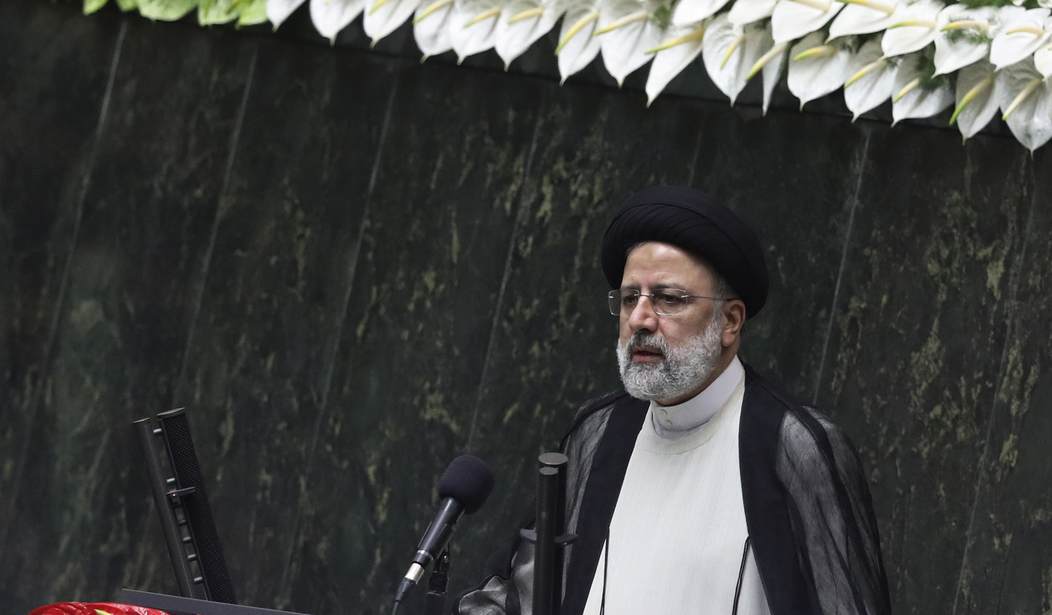Iranian President Ebrahim Raisi is bristling after his failed missile attack against Israel over the weekend. He appeared at a military parade yesterday north of the nation's capital and issued a stern warning to Bibi Netanyahu, saying that the "tiniest invasion" of Iran by Israel would result in a "massive and harsh" response from his country. He also appeared to try to explain away the failed attack, describing it as "limited" in scope, claiming that Iran could launch a much larger assault and "nothing would remain from the Zionist regime” as a result. This seems unlikely to daunt Israel, which has clearly stated that they plan to respond at a time of their choosing. In other words, the situation in the Middle East does not appear to be calming down at all. (Associated Press)
Iran’s president has warned that the “tiniest invasion” by Israel would bring a “massive and harsh” response, as the region braces for potential Israeli retaliation after Iran’s attack over the weekend.
President Ebrahim Raisi spoke Wednesday at an annual army parade that was relocated to a barracks north of the capital, Tehran, from its usual venue on a highway in the city’s southern outskirts. Iranian authorities gave no explanation for its relocation, and state TV did not broadcast it live, as it has in previous years.
Iran launched hundreds of missiles and drones at Israel over the weekend in response to an apparent Israeli strike on Iran’s embassy compound in Syria on April 1 that killed 12 people, including two Iranian generals.
Raisi seems to be in a situation where his back is against the wall. Iran has been attacking Israel and its allies through its proxies for years on end. The IRGC has been on the move in multiple countries around the region and murdered countless people. Through it all, Israel has never significantly lost control of its own territory. When Iran's proxies in Hamas launched their terror attack on October 7, that was clearly a bridge too far. But now that Israel is preparing to strike back, Raisi is in danger of losing face in a significant way.
That's not the only problem that the Iranian regime is facing. Raisi is dealing with increasing dissent from his own people. In the wake of the attack on Israel, several Iranian media outlets were openly mocking his leadership, leading to a media crackdown that has cut off much of the country from news sources. It also seems obvious that Iran doesn't need to worry about an actual "invasion" by Israel because that would be a strategic disaster. Instead, Israel can launch its own missile attacks on Iran, its proxies, its naval forces in the region, and Republican Guard leaders in multiple countries.
If the United States had a president with any spine, we would probably already be participating in those types of strikes without needing to hit the Iranian homeland directly. But other countries are already rumbling about that possibility. The Hindustan Times published an editorial this week calling for strikes on Iran's nuclear facilities. A debate has broken out in the British Parliament over whether or not direct strikes against Iran or at least elements of the IRGC are in order. Iran's allies in Russia and China have been remarkably quiet thus far, not offering much in the way of open support of Tehran after the attack on Israel.
Meanwhile, some Iranians have been fleeing to Turkey amid the crackdown taking place in their home country. Others have continued to protest the current regime's strict enforcement of Islamic dress codes and shortages of food as Iranian imports have lagged and internal production numbers have simultaneously declined. Ebrahim Raisi might have thought that the strike on Israel would be a good way to burnish his image as a tough guy and tamp down dissent on the home front. But the spectacular failure of the attack seems to be producing the opposite effect.








Join the conversation as a VIP Member